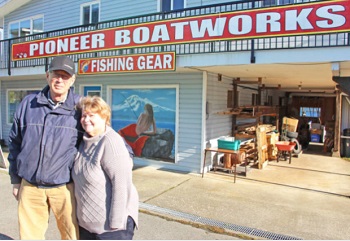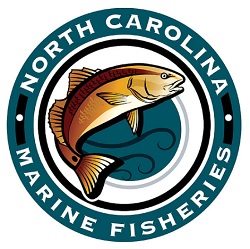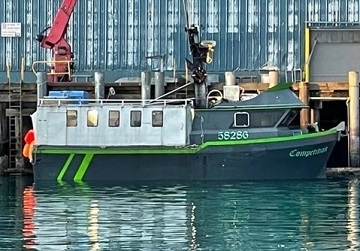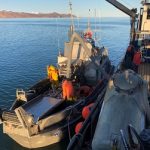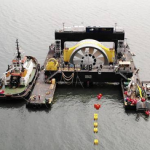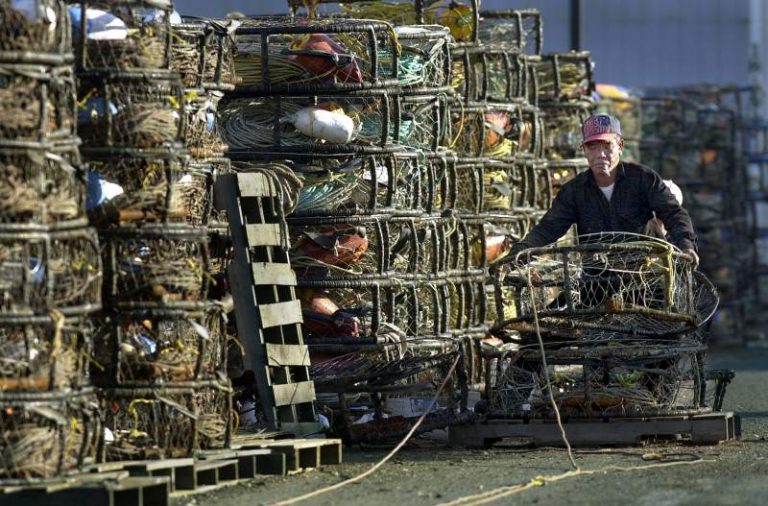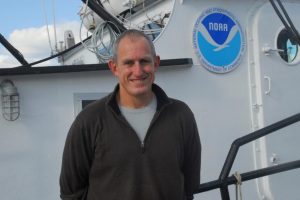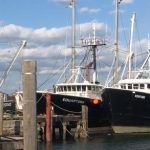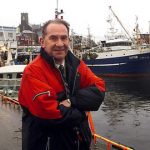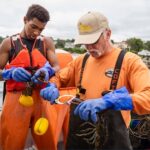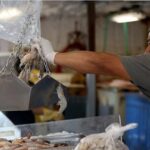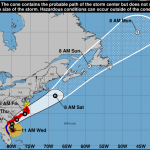Monthly Archives: February 2022
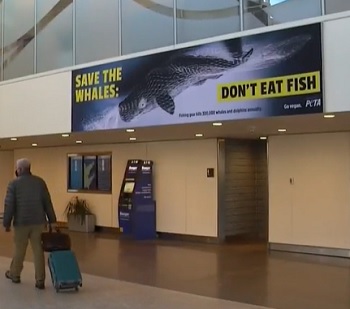
Mills Wants PETA Ad Slamming Seafood Gone from Portland Jetport
In a letter sent to the director of the Portland International Jetport, Maine Governor Janet Mills says she would like an ad created by animal rights group PETA removed. The banner ad, which is on a wall above a busy escalator, shows a whale inside of a fishing net. It reads “save the whales,” “don’t eat fish, “go vegan,” and urges passengers to avoid seafood. That sentiment does not sit well with Mills and other lawmakers, given that Maine has a fishing industry worth hundreds of millions of dollars annually. Video, >click to read< 18:56
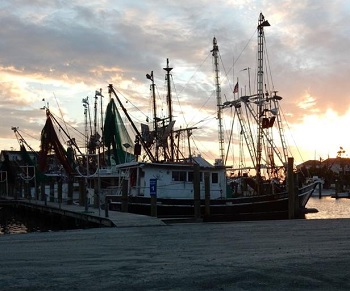
N.C. Marine Fisheries Commission approves shrimping amendment plan
Shrimpers will not be allowed to trawl in the crab sanctuaries, Bogue Sound or the Carolina Beach Yacht Basin, now that the state shrimp fishery management plan has been amended. The N.C. Marine Fisheries Commission gave final approval Feb. 25 to the Shrimp FMP Amendment 2 at its regular business meeting in New Bern. The amendment sparked strong opposition from commercial fishermen, seafood dealers and the general public early in its development when it proposed widespread shrimp trawl closures. In response, the commission chose fewer area closures than first proposed. >click to read< 15:23
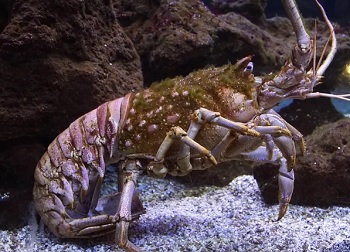
16 Types of Lobster from Around the World and How to Cook Them
American lobster may feel like an obvious choice, especially in a country that puts the meaty variety on a pedestal. However, the world of lobster is incredibly diverse. Different shapes, colors, sizes, and pokey features barely scratch the surface. Ocean waters accommodate cold-water lobsters, warm-water lobsters, and acknowledge nearby lobster relatives that don’t live in saltwater at all. All are unique, immensely delicious, and tied to boundless culinary creations. Here are 16 different types of lobsters (and related crustaceans) with assorted tips on how to cook each prized shellfish. >click to read< 12:41

Should Russia be kicked out of NAFO; its trawler fleet banned from fishing outside Canadian waters?
There’s a case for it considering Canada has closed its airspace to Russian aircraft, and even a call by hockey legend Wayne Gretzky for Russia to be banned from the rescheduled World Juniors this summer in Alberta as a consequence for the country’s invasion of Ukraine. Offshore trawlers from the Russian Federation have access to thousands of tonnes of quota a year in the NAFO zone, including redfish, turbot, and skate. Kicking Russia out of NAFO and banning its offshore draggers from the area (if that’s possible), could be another message to President Vladimir Putin that his invasion of the Ukraine is unacceptable. Below are the NAFO quota tables for 2022, including a breakdown of fish set aside for Russia. >click to read< 09:34
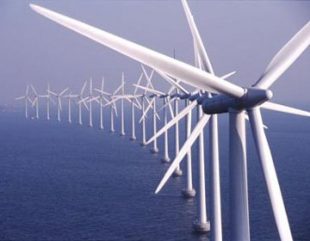
Biden-Harris Administration Sets Offshore Energy Records with $4.37 Billion in Winning Bids for Wind Sale
The Department of the Interior announced the results of the nation’s highest-grossing competitive offshore energy lease sale in history, including oil and gas lease sales, with the New York Bight offshore wind sale. These results are a major milestone towards achieving the Biden-Harris administration’s goal of reaching 30 gigawatts of offshore wind energy by 2030. Today’s lease sale offered six lease areas totaling over 488,000 acres in the New York Bight for potential wind energy development and drew competitive winning bids from six companies totaling approximately $4.37 billion. >click to read< 08:15
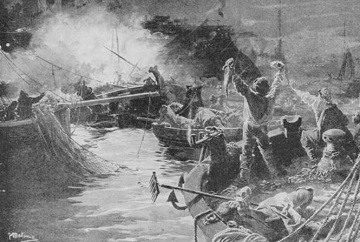
The night Russian warships mistakenly opened fire on innocent Hull fishermen
The invasion of Ukraine has triggered memories of another infamous act of Russian aggression now commemorated by a statue on one of Hull’s main roads. A memorial overlooks Hessle Road at the junction of Boulevard and features life-sized figure of a trawlerman clad in fishing gear standing on a large plinth. It’s a fitting spot in the traditional heart of the city’s former fishing community to remember the night in October 1904 when a fleet of  trawlers from Hull came under fire from the Baltic Fleet of the Imperial Russian Navy – an event described by newspaper headlines of the era as The Russian Outrage. The steam-powered vessels belonged to the Hull-based Gamecock fishing fleet and, at the time, were spread over some distance roughly 200 miles off Spurn Point in the Dogger Bank area of the North Sea. >click to read< 13:25
trawlers from Hull came under fire from the Baltic Fleet of the Imperial Russian Navy – an event described by newspaper headlines of the era as The Russian Outrage. The steam-powered vessels belonged to the Hull-based Gamecock fishing fleet and, at the time, were spread over some distance roughly 200 miles off Spurn Point in the Dogger Bank area of the North Sea. >click to read< 13:25
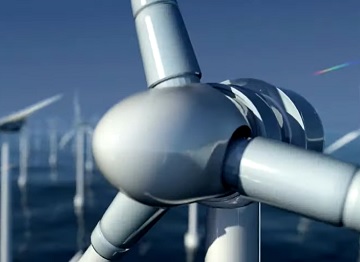
Blown of the water? West Coast offshore wind farm area announcement raises concerns
Offshore wind energy is coming to Oregon, according to the Bureau of Ocean Energy Management, but the seafood industry says it’s an oncoming windstorm. These massive areas, covering 2,181 square miles, already are utilized by the fishermen to harvest nutritious, sustainable seafood proteins. As part of its process, BOEM will solicit interest from wind energy developers before doing a basic environmental assessment of the areas. Comprehensive environmental studies will be completed later, after leases are already issued and enormous investments are already made. Fishermen already are questioning the value of placing turbines in areas off Morro Bay and Humboldt Bay, Calif. >click to read< 10:53
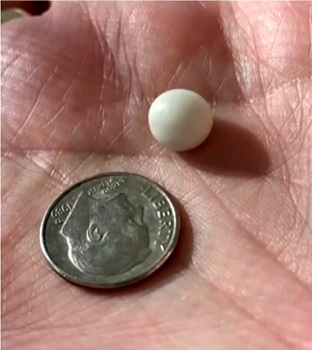
New Jersey couple finds a pearl worth thousands during dinner at The Lobster House in Cape May
“It’s like a once in a lifetime event,” Maria Spressler said. Last Sunday, Michael Spressler ordered his usual appetizer, a dozen clams on the half shell. “I was down to the 12th one and when I picked it up on the fork it looked kinda heavy, but I didn’t think nothing of it,” Michael Spressler said. “Then when I started to eat it I noticed something was in my mouth. I actually thought one of my teeth broke.” Not only did something spectacular and rare happen on their impromptu trip, but the couple was also celebrating a special occasion. Video, >click to read< 10:07
Personal locator beacons – New coalition is making the devices cheaper for fishermen
There have been 20 fatalities in the province’s fishing industry over the past 10 years, and the bodies of five of those fishermen have never been recovered. So the Newfoundland and Labrador Fish Harvesting Safety Association has partnered with the Fish Harvesters’ Resource Centre, the Professional Fish Harvesters Certification Board, and the Fish Food & Allied Workers union to subsidize the cost of 2,500 beacons. Video, >click to read< 09:20
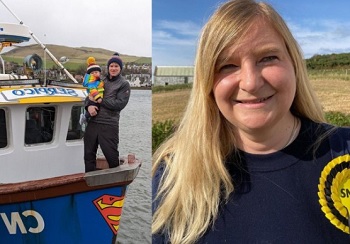
‘Never-ending battle’ for creel fisherman as Jenni Minto MSP seeks support after ban
A creel fisherman based at the Clyde continues to feel ignored and neglected as an MSP has asked the Scottish Government to consider “all options” to support families affected by a ban. Jenni Minto, SNP MSP for Argyll and Bute, has written to the Scottish Government to ask for support to be considered for fishermen impacted by a closure in the Clyde. Despite the MSP’s action, creel fisherman Paul McAllister said he continues to feel “purposefully ignored” by the Scottish Government and “weighed down”. Last week, the Scottish Government said the ban would have “short-term costs” to protect the cod population. >click to read< 08:27
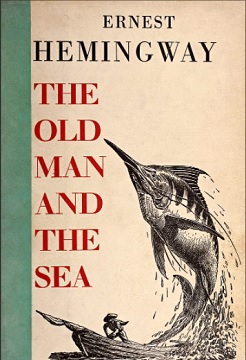
University warns woke students, Hemingway’s Old Man and the Sea contains graphic fishing scenes!
Ernest Hemingway’s classic novel The Old Man And The Sea is the latest victim of today’s woke standards, with students warned that it contains ‘graphic fishing scenes’. Successive TV and film adaptations of the 1952 classic have been awarded U and PG certificates, suitable for children, but a content warning has been issued to History and Literature students at the University of the Highlands and Islands in Scotland, an area renowned for its fishing industry. Mary Dearborn, the author of Ernest Hemingway, A Biography, said: ‘This is nonsense. It blows my mind to think students might be encouraged to steer clear of the book. >click to read< 17:34

Drugs on deck: Meth abuse hampers use of fisheries observers
Methamphetamine abuse aboard the commercial fishing fleet is preventing officials from placing observers on high-risk vessels. Reports released reveal hard drug use and the erratic behaviour of crew has led to observers feeling unsafe. And in some cases, the Ministry for Primary Industries have refused to put staff on board. And a survey commissioned by Maritime NZ reveals 30 per cent of fishers knew someone who used drugs while on deck. It follows the death of 26-year-old Steffan Stewart, who died after becoming trapped in a piece of machinery aboard a factory trawler. He was found with methamphetamine in his system likely consumed at sea, a Transport Accident Investigation Commission review found. >click to read< 11:37

Body recovered after commercial fisherman goes overboard near Bodega Bay
Authorities recovered a body Friday afternoon after searching for a commercial crab fisherman reported overboard near the southern end of Bodega Bay. The search was launched after the young skipper’s boat was found adrift, with no one inside, local fishermen said. “The local fishing community helped out with the search plan of it, passing information about last communication with (the missing captain) at 9 p.m. last night,” a Coast Guard spokesperson said. “However, they did not suspect anything wrong until the report of the adrift vessel.” Members of the fishing community said the man was known to fish alone, despite pleas from his friends not to do so, said Dick Ogg, a well-known veteran fisherman. >click to read< 09:04
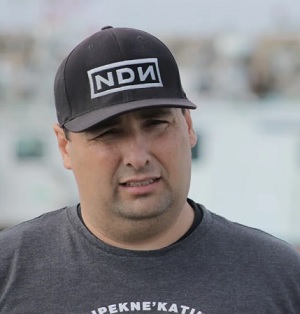
Mi’kmaw fisher won’t participate in restorative justice process
A plan by Crown prosecutors to put a restorative justice process in place for non-Indigenous fishermen accused of assault and arson will not include the Mi’kmaw fisher who was surrounded by a mob while he was inside a lobster pound. The Mi’kmaw fisherman who has not spoken to the media about the process has told the Crown he wants nothing to do with the process. Almost two years ago, lobster harvesters from Sipekne’katik First Nation exercised their treaty right to fish, launched their self-regulated fishery at Saulnierville wharf, in southwestern Nova Scotia. “It’s a double standard it’s unreal,” says Sipekne’kativ First Nation Chief Mike Sack. “I don’t even like using the word Canadian anymore.” Sack says he doesn’t believe justice will be served by going this route. Video, >click to read< 07:33
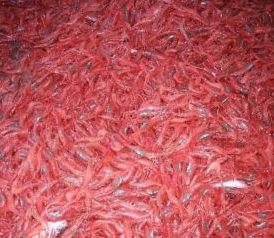
Northern Shrimp Assessment Fails to Capture True Picture of Stock Health
The Department of Fisheries and Oceans (DFO) science department delivered a technical briefing to industry this morning detailing the most recent stock assessment for northern shrimp. FFAW-Unifor continues to call on the Department to reassess the Limit Reference Point (LRP) for northern shrimp and incorporate harvesters’ observations in science assessments. “The LRP is set at a time when cod and other groundfish were at very low levels. Expecting the species to rebound to that level when the marine environment is now completely different is short-sighted. We need to consider the entire marine ecosystem when establishing rebuilding plans,” says FFAW-Unifor President Keith Sullivan. >click to read< 18:27
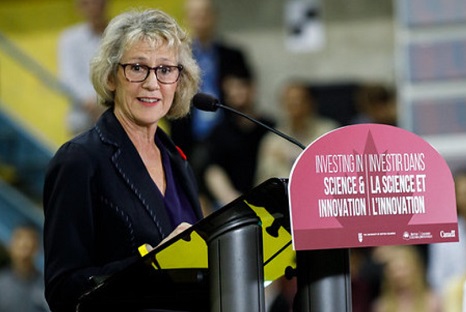
Harvesters Warn of ‘Dire Effects’ as Minister Aims to Protect Fish Stocks from Climate Disruption
A recent appearance by Fisheries Minister Joyce Murray at an industry annual meeting has set off a sea squall of controversy, with harvesters and unions warning of the “dire social and economic effects” of federal catch limits and Murray stressing her interest in keeping fish stocks sustainable in an era of climate disruption. The unions representing fish harvesters on Canada’s east and west coasts claim her remarks to the annual general meeting of the Canadian Independent Fish Harvesters Federation (CIFHF) reflected a “singular focus on ocean conservation” at the cost of workers whose livelihoods rely on the fishery industry. >click to read< 15:38
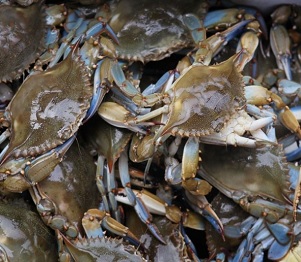
Maryland Crab Industry Says Labor Shortage Looms Again – Call for change to H2B Visa Program
Ask Jack Brooks, president of the Chesapeake Bay Seafood Industries Association, how the Maryland crab-picking season ahead looks right now, and he simply said, “Ugly.” The problem has nothing to do with the supply of crabs expected to be caught and processed in the crab houses of the Chesapeake Bay. The problem is labor. Every year, a total of 66,000 H-2B temporary work visas are up for grabs in a nationwide lottery. >click to read<
Hooper’s Island crab houses call for change to H2B Visa Program after 1 house out of 10 recieves workers – Phillips believes it’s not just the 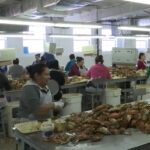 crab houses that will close if this continues, the entire seafood infrastructure including watermen and wholesalers on Hooper’s island could be wiped out. “They could survive if there were one or two houses that miss out on visas but with nine out of ten [businesses] they are going to go out of business too,” he said. Video, >click to read< 12:37
crab houses that will close if this continues, the entire seafood infrastructure including watermen and wholesalers on Hooper’s island could be wiped out. “They could survive if there were one or two houses that miss out on visas but with nine out of ten [businesses] they are going to go out of business too,” he said. Video, >click to read< 12:37
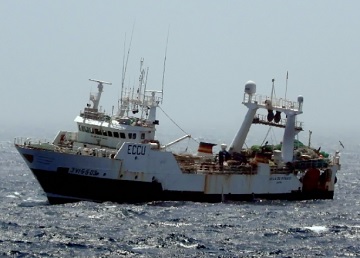
F/V Villa de Pitanxo: Repatriation of dead sailors stalled after bodies test positive for COVID-19
Some of the bodies of Spanish and Peruvian sailors who drowned in a shipwreck off Newfoundland’s coast last week are reportedly not being returned to their families right away because their corpses tested positive for COVID-19. The Spanish fishing vessel Villa de Pitanxo sank 460 kilometres off the coast of Newfoundland on Feb 15. Three fishermen were rescued and nine bodies were recovered, with 12 still missing. Four of the bodies, including two Spaniards and two Peruvians, reportedly tested positive for COVID-19 after being recovered. >click to read< 11:07
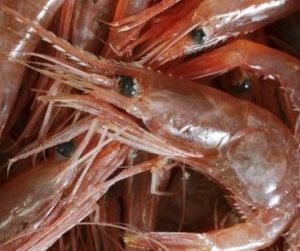
DFO to Release Latest Assessment of Northern Shrimp Stocks
DFO will provide an update this morning on its latest assessment of northern shrimp stocks in the waters surrounding Newfoundland and Labrador and the FFAW will be watching very closely Fisheries Union President Keith Sullivan says they’ll be interested in seeing whether the information and concerns provided by harvesters, particularly as it relates to the Sustainable Fisheries Framework are reflected in today’s announcement. >click to read< 10:27
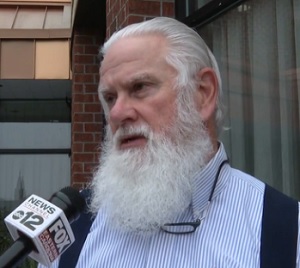
North Carolina: Decision on gill nets delayed, officials say more information is needed
No decision was made Thursday by the Marine Fisheries Commission on whether or not large mesh gill nets will be allowed in North Carolina. The decision was delayed because board members said they want more information. Commissioners are torn about two things, if these nets should be used above ferry lines and whether they should be phased out of southern flounder fishing. For many fishermen like Jerry Schill, commercial fishing with large mesh gill nets have been a way of life. He doesn’t want them to be banned. Video, >click to read< 08:41
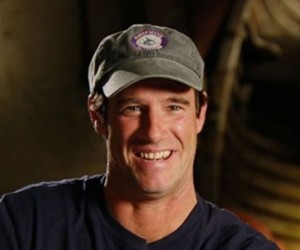
‘Wicked Tuna’ returns for Season 11
The tuna fishermen in the National Geographic hit series “Wicked Tuna” were not crushed by the global COVID-19 pandemic, although they too faced the challenges of a world economy turned upside down. But the “monstah” bluefin tuna competition is back. Season 11 kicks off on NatGeo TV with the extended 90-minute episode “Back on the Hunt” this Sunday, Feb. 27, at 9 p.m. Filmed on location in Gloucester and at sea, the show follows experienced fishermen from the nation’s oldest seaport, chronicling their triumphs and sometimes the ones that get away. Of the eight captains, half are from Gloucester, and two are from Beverly. The other two are from New Hampshire and New Jersey. >click to read< 21:24
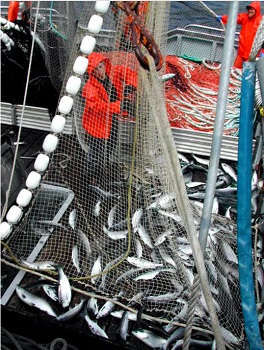
Survey says processors are beefing up for record Bristol Bay run, but it still might not be enough
If the state’s forecasts for the 2022 Bristol Bay sockeye run are even close to accurate, there could end up being millions more fish to catch than anyone is willing, or able, to buy. A survey conducted in January by the Alaska Department of Fish and Game of 15 Bristol Bay-area processors found that the processing companies intend to purchase up to 52 million sockeye this year. However, the department is predicting a record Bristol Bay inshore run next year of more than 73 million fish, which would provide nearly 62 million available for harvest based on the escapement goals for each of the major river systems that feed the Bay. The record-level prediction follows a record inshore run of more than 66 million sockeye last year that lead to a commercial harvest of 40.4 million fish, one of the largest Bristol Bay sockeye harvests ever. >click to read< 12:07
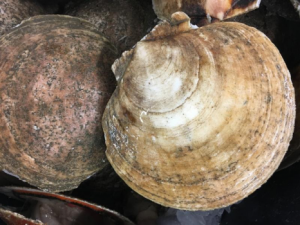
New rules for scallop fishery scheduled to take effect April 1 in Northern Gulf of Maine
A Feb. 17 presentation on upcoming changes to Northern Gulf of Maine scallop fishery management drew a number of New England fishermen to listen to scallop leaders from the New England Fishery Management Council and NOAA. The biggest change for scallop fishermen is that vessels fishing in Northern Gulf of Maine waters will be required to take industry-funded scallop observers on board when selected to do so. Additionally, a portion of Stellwagen Bank in Massachusetts Bay will open for scallop fishing. >click to read< 10:14
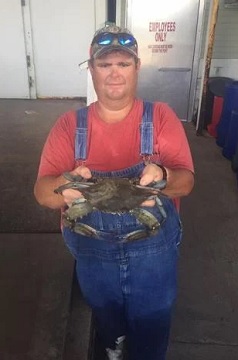
Louisiana man says he will fight to protect our Cajun seafood heritage
Fewer people work on the water today than they did 20 years ago, and there are many reasons for that decrease. But for Golden Meadow seafood fisherman Chad Cheramie Sr., his work is a labor of love, one that he hopes to protect and pass on to future generations in his family. Cheramie catches crabs, crawfish and black drum throughout the year, using his catch to provide for his family. He said that the work is hard, but it’s a passion, one he hopes to do for as long as God allows. >click to read< 09:22
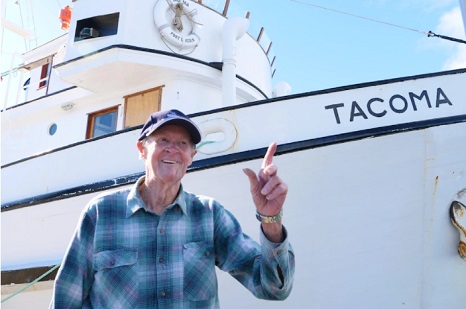
Jack Bellamy, South Australia’s traditional tuna fisher pioneer poles his last fish at 88
Jack Bellamy says he’s poled his last southern bluefin tuna. The 88-year-old is a pioneer of the commercial tuna fishing industry in South Australia and is the last of his era to land a tuna by pole. Mr Bellamy came to South Australia with his twin, Keith, 70 years ago from Port Fairy in Victoria, aboard the purpose-built purse seine net boat, Motor Fishing Vessel (MFV) Tacoma. The Haldane family built the wooden boat over seven years. When it was ready to launch, the neighbouring Bellamy twins, who’d grown up watching it take shape outside their kitchen window, joined the crew. They turned 18 on the way to Port Lincoln. Video, photos, >click to read< 07:55






